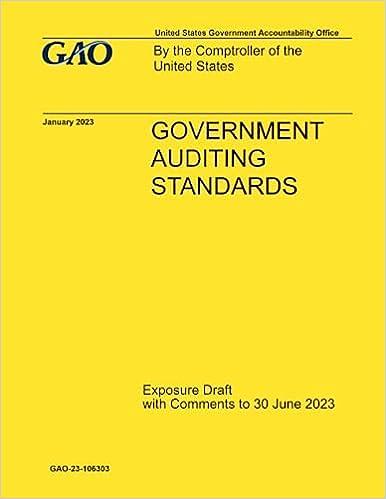Question
In recent years, the airline industry has dominated headlines as airline companies have adjusted to government deregulation of fares and routes. Fare wars, bankruptcies, and
In recent years, the airline industry has dominated headlines as airline companies have adjusted to government deregulation of fares and routes. Fare wars, bankruptcies, and new no-frills carriers are signs of an industry fighting to survive. Many airlines cannot fill the planes they own. Fierce competition has resulted in bargain fares that fail to cover the airlines operating costs. And the government has repeatedly raised fuel and excise taxes. To date, the consumer has been the big winner. As competing airlines lower fares to fill seats, consumers have learned to shop around for the lowest rates. The carriers have also lured customers with frequent-flyer programs, which award free flights to passengers who accumulate specified miles of travel. Some years ago, the business community (and the accounting profession) recognized that unredeemed frequent-flyer mileage represents a liability that airlines must include on their balance sheets. Industry executives believe that to succeed, airlines must reduce operating costs and offer various levels of service at different pricesjust as the hotel chains do. Southwest Airlines, a profitable U.S. no-frills carrier based in Dallas, has been a notable exception to this industrys ills. Southwest controls costs by flying to smaller, less expensive airports; using only one model of aircraft; serving no meals; increasing staff efficiency; and having a shorter aircraft turnaround time on the ground between flights. The fact that most of the cities served by Southwest have predictable weather maximizes its on-time arrival record. Industry executives predict that, in the long run, the weaker airlines will go out of business. The supply of passenger seats will adjust to match consumer demand better. The resulting decrease in competition will put an end to the bargain fares. Required With a partner or group, lead your class in a discussion of the following questions, or write a report as directed by your instructor. 1. Frequent-flyer programs have grown into significant obligations for airlines. Why should a liability be recorded for those programs? Discuss how you might calculate the amount of this liability. Can you think of other industries that offer incentives that create a similar liability? 2. One of Southwest Airlines strategies for success is shortening stops at airport gates between flights. The companys chairman has stated, What [you] produce is lower fares for the customers because you generate more revenue from the same fixed cost in that airplane. What is the fixed cost of an airplane? How can better utilization of assets improve a companys profits?
Step by Step Solution
There are 3 Steps involved in it
Step: 1

Get Instant Access to Expert-Tailored Solutions
See step-by-step solutions with expert insights and AI powered tools for academic success
Step: 2

Step: 3

Ace Your Homework with AI
Get the answers you need in no time with our AI-driven, step-by-step assistance
Get Started


